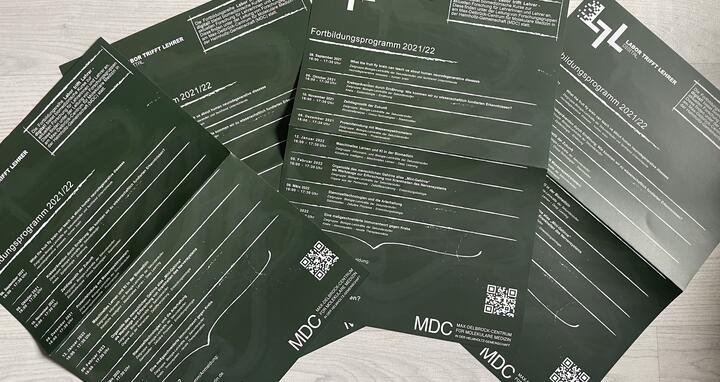Lab Meets Teacher addresses cell diagnostics, cancer and AI
Headlines like “Eating broccoli reduces cancer risk by 30 percent” are guaranteed to grab people’s attention. “But we must be careful with announcements like that,” says Zoe Ingram of the LMT team at the Max Delbrück Center for Molecular Medicine in the Helmholtz Association (MDC). Studies that are targeted towards achieving such headlines often have questionable methods or inaccurately interpret their results. A new LMT training session on October 6, 2021 entitled “Cancer prevention through diet: How can we achieve scientifically sound findings?” addresses this important topic and shows how individual epidemiological studies are generating greater knowledge about how to prevent cancer.
Single-cell analysis and artificial intelligence in biomedicine are currently hot research topics. More and more labs are working with those methods, but few people know anything about them.
The focus of the program is one that LMT cares about greatly: showing how science works and providing insights into new research topics, methods and technologies. The new program therefore also takes a look at the “Cell diagnostics of the future” on November 10, 2021, when Dr. Leif S. Ludwig’s lab at the MDC’s Berlin Institute for Medical Systems Biology (BIMSB) will introduce participating science teachers to single-cell analysis. This technique enables scientists to precisely observe how cells and their interactions change throughout the course of a disease. This should allow diseases to be diagnosed earlier in future and be treated in a more tailored way. “Single-cell analysis and artificial intelligence in biomedicine are currently hot research topics,” says Ingram. “More and more labs are working with those methods, but few people know anything about them. Teachers play a key role in transferring knowledge within society and that’s why we want to pass on information to them about the latest developments in medical science.”
Science to get excited about
Since 2020, the events have been taking place online as 90-minute presentations with a subsequent discussion. The great advantage of this format is that anyone who is interested can take part. Only eight teachers would be present at the events that used to take place in person. And those were usually only teachers from the German states of Berlin and Brandenburg. Now teachers from further afield are able to take advantage of the program, even from countries as far away as Argentina. The program has been very well received since being revamped in response to the COVID-19 pandemic. This was the finding of a survey of participants in the online events to date. More than 90 percent of respondents said that their expectations had been fulfilled. Around 95 percent found the online format a good alternative to in-person events. Almost 90 percent of participants said they had improved their knowledge of their field, and around two-thirds of them said that the course content would enrich their teaching in school. “The LMT team wants to get teachers excited about their fields again,” says Ingram. “And the positive responses show that we have managed to achieve that with our new program.”
The LMT courses are officially accredited teacher training courses and participation is free of charge.
Text: Wiebke Peters





